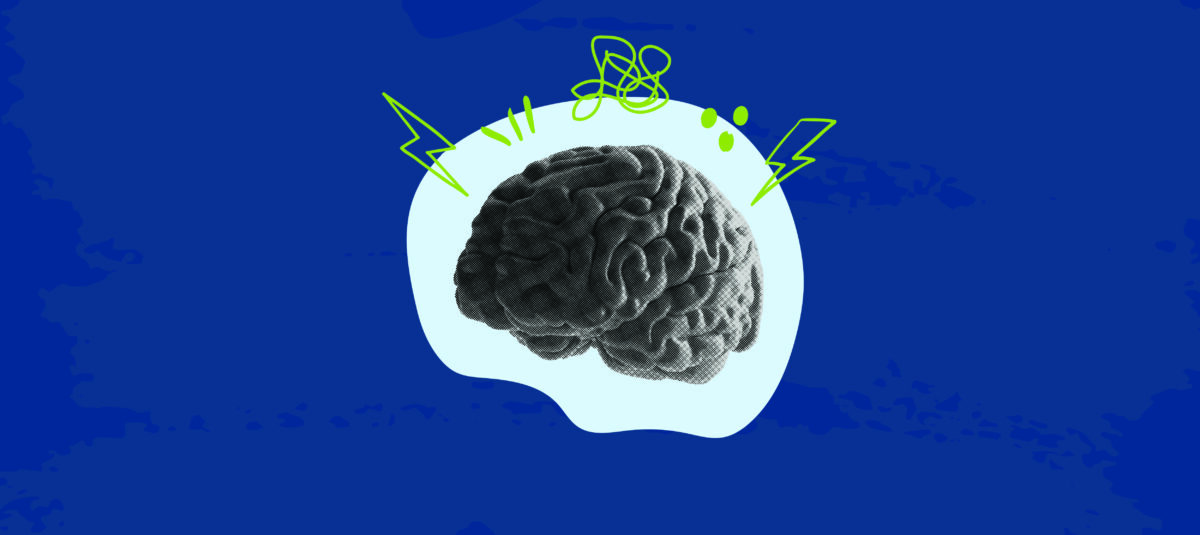April is here — bringing more sun, warmer weather, and, yes, exams. Balancing stress and anxiety with life’s demands can feel overwhelming and isolating. That’s why Active Minds launched Stress Less Week®, a national program that occurs in the fall and spring each year. Our goal with Stress Less Week® is clear: build communities that address stress and anxiety in support of mental health and to encourage individuals to understand that talking about one’s struggles is a sign of strength. We also recognize that stress is not just a once-a-year occurrence; it requires daily awareness and a commitment to practicing self-care techniques to support mental health and wellness.
So, what is stress? Stress is a normal response to our environment, whether internal or external, and can actually be quite adaptive. Surprisingly, stress isn’t always negative. Positive stress, known as eustress, can motivate us and help us work toward our goals, enhancing our focus and confidence. Think of trying something outside your comfort zone, meeting new people, or traveling to an exciting new destination.
On the other hand, problematic stress, or distress, arises when stress persists for a prolonged period and becomes unmanageable. This form of stress can have serious consequences to our physical and mental health, and can even exacerbate our feelings of stress and anxiety. This is where daily practices of self-care can help combat, manage, and reduce stress — in the current moment AND in the long run.
Individually, this self-care can look vastly different from person to person. That is what’s unique about stress management: the lack of a prescribed “to do” or “right vs. wrong” way to accomplish it. For some, it may look like taking a walk every day or saying “no” when you feel burnt out. For others, it can look like setting a date for coffee with a friend or seeking guidance from a trained counselor. Remember, you are the best expert on yourself. You know what feels good, helpful, and supportive. And if you’re struggling with where to start, here are a few ideas to get you going:
Identify Your Stressors
When you are experiencing stress, it can help to identify the stressor, your reaction, and your self-talk (internal dialogue) to help identify the best stress-relieving strategies and activities, also known as coping mechanisms.
Try using a simple table, like the one in our Stress Less Week® toolkit, to help you find patterns for when you are most stressed, symptoms, preceding events, self-talk, and coping skills that helped or (or didn’t helped). This is a great way to become attuned to your body’s wants and needs.
Get Enough Sleep
Believe it or not, sleep is our body’s number one strategy for managing and reducing stress. When we reach the deep sleep stage of the sleep cycle, our body is able to repair and regenerate itself, making it not only the most important but also the most restful part of sleep (pretty cool, right?). To promote good sleep habits, many doctors recommend turning off all electronics at least an hour before bed, avoiding caffeine and other stimulants in the afternoon, and creating an optimal sleep environment that is comfortable, cool, and dark.
Nourish Your Body
Have you eaten today? Did you drink water? Have you gotten up and moved your body in the last hour? While these tasks may seem simple, they are vital for overall wellness. Sometimes, just focusing on these three steps is all you can manage, and that’s perfectly okay.
Connect with Family and Friends
Loneliness is often referred to as the silent killer, emphasizing the essential human need for community and social connection. While technology allows us to connect with loved ones who are far away, there’s nothing quite like an old-fashioned car talk or a lunch date. Consider inviting a friend to go hiking or to watch the latest episode of a show you both enjoy together. Connection doesn’t have to involve extravagant outings; it can also be found in the simple, everyday moments that remind us we are not alone.
So, when life throws its inevitable curveballs, remember that your capacity to overcome challenges is immense. Ready to cultivate calm and navigate stress with greater ease? Explore Active Minds’ Stress Less Week® Toolkit for practical resources and tips to build resilience and foster a supportive mental health culture around you. Embrace your strength – download the FREE Stress Less Week® Toolkit and explore resources from Active Minds today.





